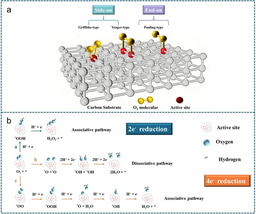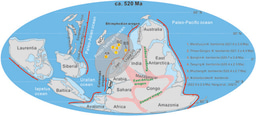Education, political ideology, and climate change beliefs around the world
Published in Social Sciences

Conventional wisdom holds that higher levels of education are related to better science comprehension, and those who are educated hold beliefs that are in line with the scientific consensus. My colleagues, Małgorzata Kossowska, Paulina Szwed, and I had expectations of how education should work when it comes to climate change beliefs: the more educated you are, the more likely it is that you accept the fact that climate change is occurring, is caused by humans, and requires decisive action. However, when we started working in the Knowledge Resistance project, it quickly turned out that the relationship between education and science-related beliefs is far more complex. Focusing specifically on climate change seemed crucial to us as this issue is more and more pressing: if global warming keeps increasing at the current rate, it will reach 1.5°C above pre-industrial levels between 2030 and 2052 (ICPP, 2018). Many people’s livelihoods, health, food and water supplies will be affected by rising sea levels, extreme weather, and loss of ecosystems, to name but a few consequences of climate change.
Who believes in climate change and who does not?
Studies show that education has rather modest effects on climate change beliefs when we look at society as a whole (e.g. Hornsey et al., 2016; Lewandowsky & Oberauer, 2016). Instead, when we examine political groups separately, it turns out that for people on the political left the conventional wisdom is correct: the more educated they are, the more likely they are to believe that climate change is occurring and is caused by humans. In contrast, for the political right, education has modest effects on climate change beliefs and some findings even suggest that the educated are less likely to think that climate change is occurring, is caused by humans, or that we should do something about it (e.g., Drummond & Fischhoff, 2017; Hamilton, 2011; Kahan et al., 2012). These paradoxical effects of education led some to conclude that targeting education or public understanding of science is of little use when it comes to changing climate change beliefs. Learning about these findings was intriguing: how is it even possible that people who are better equipped to understand science endorse scientific knowledge to a lesser extent than those who have lower levels of education?
When we started looking at where such findings come from, it turned out that the majority of this research was conducted in the US, or sometimes in the UK, Canada, or other highly developed countries. Then we asked ourselves whether education plays a similar, paradoxical role for the political right across the world and the aforementioned countries have just been scrutinized more. Or maybe there is something special about these countries: is it because of their economic development that climate change has become a highly contentious issue and these societies are more polarized around climate change than others?
Context matters
So, we decided to analyse the effects of education on climate change beliefs for the political left and right around the world by focusing on the human development index (HDI). HDI is a measure that combines several indices such as life expectancy, education, and income per capita. In less technical terms, HDI reflects how much people are able to be healthy, well-fed, housed, employed, educated, etc. (ul Haq, 1995). For example, OECD countries tend to have very high HDI scores, whereas Sub-Saharan African countries tend to have very low HDI scores.
We found that education is related to more pro-climate change beliefs and attitudes in the vast majority of countries, but especially in those at the lower or mid-level of development. Even if climate change beliefs were related to political ideology, education very rarely worked in a paradoxical way. Instead, for highly developed countries, education is related to more pro-climate change beliefs among both the political left and right, but its effects are weaker among the political right than the political left.
Our analysis showed that education is associated with climate change beliefs in the majority of the countries analyzed and that it very rarely has paradoxical effects. Future studies are needed to verify whether improving education also changes beliefs around climate in the way our study suggests. We also acknowledge that, in some contexts, the role of political ideology probably needs to be taken into account in interventions concerning climate change beliefs, and research in the future should seek to understand why education is not associated with more pro-climate change beliefs in some contexts.
References
Drummond, C., & Fischhoff, B. (2017). Individuals with greater science literacy and education have more polarized beliefs on controversial science topics. Proceedings of the National Academy of Sciences, 114(36), 9587–9592. https://doi.org/10.1073/pnas.1704882114
Hamilton, L. C. (2011). Education, politics and opinions about climate change evidence for interaction effects. Climatic Change, 104(2), 231–242. https://doi.org/10.1007/s10584-010-9957-8
Hornsey, M. J., Harris, E. A., Bain, P. G., & Fielding, K. S. (2016). Meta-analyses of the determinants and outcomes of belief in climate change. Nature Climate Change, 6(6), 622–626. https://doi.org/10.1038/nclimate2943
ICPP. (2018). Global Warming of 1.5 oC: An IPCC special report on the impacts of global warming of 1.5 °C above pre-industrial levels and related global greenhouse gas emission pathways, in the context of strengthening the global response to the threat of climate change, sustainable development, and efforts to eradicate poverty. Retrieved from https://www.ipcc.ch/sr15/
Kahan, D. M., Peters, E., Wittlin, M., Slovic, P., Ouellette, L. L., Braman, D., & Mandel, G. (2012). The polarizing impact of science literacy and numeracy on perceived climate change risks. Nature Climate Change, 2(10), 732–735. https://doi.org/10.1038/nclimate1547
Lewandowsky, S., & Oberauer, K. (2016). Motivated Rejection of Science. Current Directions in Psychological Science, 25(4), 217–222. https://doi.org/10.1177/0963721416654436
McPhetres, J., & Pennycook, G. (2019). Science beliefs, political ideology, and cognitive sophistication. https://doi.org/10.31219/osf.io/ad9v7
ul Haq, M. (1995). Reflections on Human Development. Oxford: Oxford University Press.
The author of the photo "Dried Earth" used as a background picture is Gilbert Mercier (license CC BY-NC-ND 2.0).
Follow the Topic
-
Nature Climate Change

A monthly journal dedicated to publishing the most significant and cutting-edge research on the nature, underlying causes or impacts of global climate change and its implications for the economy, policy and the world at large.






Please sign in or register for FREE
If you are a registered user on Research Communities by Springer Nature, please sign in